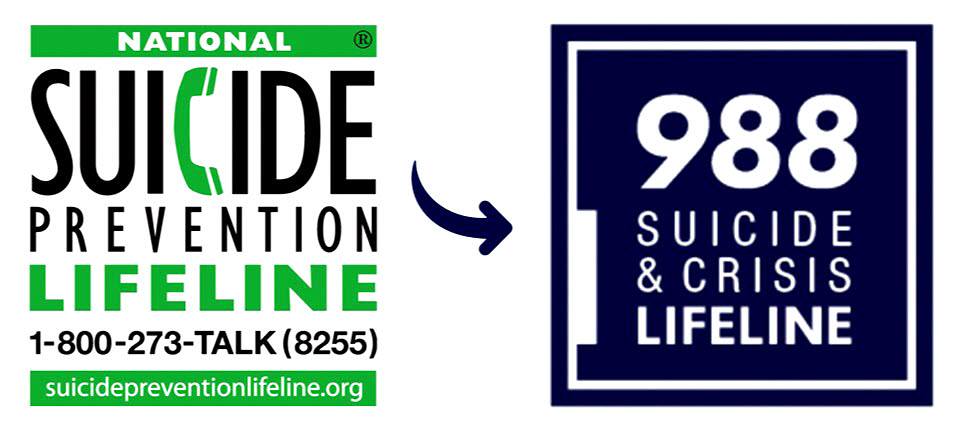
Tracy Protell, MD
Suicide is a major public health concern. Suicide was responsible for over 48,000 deaths in 2021, that equates to one death every 11 minutes. The suicide rate among people aged 10–24 increased 62% from 2007 through 2021. This has deeply impacted individuals, families, and communities.
Every person can play a role in helping to prevent suicide by knowing a few key things and where to get help.
The Basics. Most suicides result from depression. Depression can cause someone to feel worthless, hopeless, and a burden on others, making suicide falsely appear to be a solution. Mental health and suicide can be difficult to talk about, but your actions can make a difference. As a friend or family member, you may sense when something is wrong.
There are Warning Signs to Look Out For. Certain events and circumstances may increase risk for suicide. Look out for warning signs that may indicate a loved one needs help. Signs may include drastic changes in behavior and mood, verbal suicide threats, such as “You’d be better off without me,” lack of interest in future plans, references to “unbearable” feelings and hopelessness, saying good-bye to family and friends, giving away prized possessions, and increasing withdrawal from family and friends. These warning signs, among others, may indicate someone is at risk.
Words are Powerful. While it can be uncomfortable to talk about suicide, research has shown that using the right words and asking someone if they are having thoughts of killing themselves is a helpful tool, and likely to have a positive, lifesaving impact. And though communities across the nation continue to make improvements in talking about suicide and discussing mental health more openly, suicide and suicidal ideation remain highly stigmatized. When talking about suicide, avoid using terms like, “commit or committed” as it places blame, can create feelings of shame, and further remove the person from getting the help they need.
#James Donaldson notes:Welcome to the “next chapter” of my life… being a voice and an advocate for #mentalhealthawarenessandsuicideprevention, especially pertaining to our younger generation of students and student-athletes.Getting men to speak up and reach out for help and assistance is one of my passions. Us men need to not suffer in silence or drown our sorrows in alcohol, hang out at bars and strip joints, or get involved with drug use.Having gone through a recent bout of #depression and #suicidalthoughts myself, I realize now, that I can make a huge difference in the lives of so many by sharing my story, and by sharing various resources I come across as I work in this space. #http://bit.ly/JamesMentalHealthArticleFind out more about the work I do on my 501c3 non-profit foundationwebsite www.yourgiftoflife.org Order your copy of James Donaldson's latest book,#CelebratingYourGiftofLife: From The Verge of Suicide to a Life of Purpose and Joy
Link for 40 Habits Signupbit.ly/40HabitsofMentalHealth
www.celebratingyourgiftoflife.com
Resources Exist. Suicide is preventable and resources exist to support individuals, families, and communities. People experiencing a mental health crisis can call or text the numbers 9-8-8. Modeled after 911, the new three-digit 988 Suicide & Crisis Lifeline connects people experiencing suicidal, substance use, and/or mental health crisis, or any other kind of emotional distress to a trained mental health professional. The Lifeline provides 24/7, free and confidential support for people in distress, prevention and crisis resources for you or your loved ones.
You Can Help. If you suspect a loved one is in mental health-related distress and contemplating suicide, take a hyper-vigilant approach by removing any weapons, alcohol, drugs, or sharp objects that could be used in a suicide attempt and contact the 988 Suicide and Crisis Lifeline for support. If somebody is at immediate risk, don’t leave the person alone. Call 911, take them to the emergency room, or seek help from a medical or mental health professional.
Every person has a role in suicide prevention, and can make a positive difference in someone’s life by understanding and knowing what to do if you suspect they may be at risk of suicide.
September is Suicide Prevention Awareness Month. Dr. Tracy Protell is a child and adolescent psychiatrist with Barton Psychiatry & Mental Health. For more information about taking care of your mental health, or for a list of area resources and crisis lines, visit BartonHealth.org/MentalHealth.
https://standingabovethecrowd.com/jamesdonaldson-on-mentalhealth-5-things-you-should-know-about-suicide/


No comments:
Post a Comment